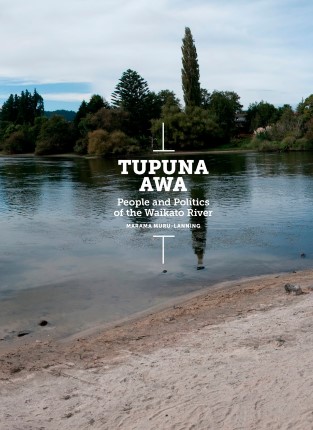
Tupuna Awa: People and Politics of the Waikato River, Marama Muru-Lanning (2016)

Do Māori own the water? If they don’t, who does? Can, in fact, water be owned? And if not, how do different groups describe their relationship with water and how does that language matter? Marama Muru-Lanning explores these questions in Tupuna Awa by examining the people and politics of the Waikato River.
Publication details
Muru-Lanning. M. Tupuna Awa: People and Politics of the Waikato River. Auckland: Auckland University Press, 2016.
About the book
For iwi and hapū of the lands that border its length, the Waikato River is an ancestor, a taonga and a source of mauri, lying at the heart of identity and chiefly power. Marama Muru-Lanning (Waikato, Ngāti Maniapoto) presents the Waikato River as a key focus of ongoing local struggles for prestige and mana, in which recognising Māori property rights in freshwater is just the latest manifestation. Against a background of seized lands and natural resources, this book examines the significance of the Waikato River as a key symbol in restoring Waikato Māori status and mana.
Muru-Lanning also illuminates the contests for power between Maori and the state, examining governing oversight by the Crown, intersected by hydro-stations managed by state-owned power companies: a situation rife with complexity and subject to shifting and subtle power dynamics.
Muru-Lanning explains how Māori of the region, the Crown and Mighty River Power have talked about the ownership, guardianship and stakeholders of the river. By examining the debates over water in one New Zealand river, over a single recent period, Muru-Lanning provides a powerful lens through which to view modern iwi politics, debates over water ownership, and contests for power between Māori and the state.
Further information
This publication is part of the series Te Takarangi: Celebrating Māori publications - a sample list of 150 non-fiction books produced by a partnership between Royal Society Te Apārangi and Ngā Pae o te Māramatanga.
